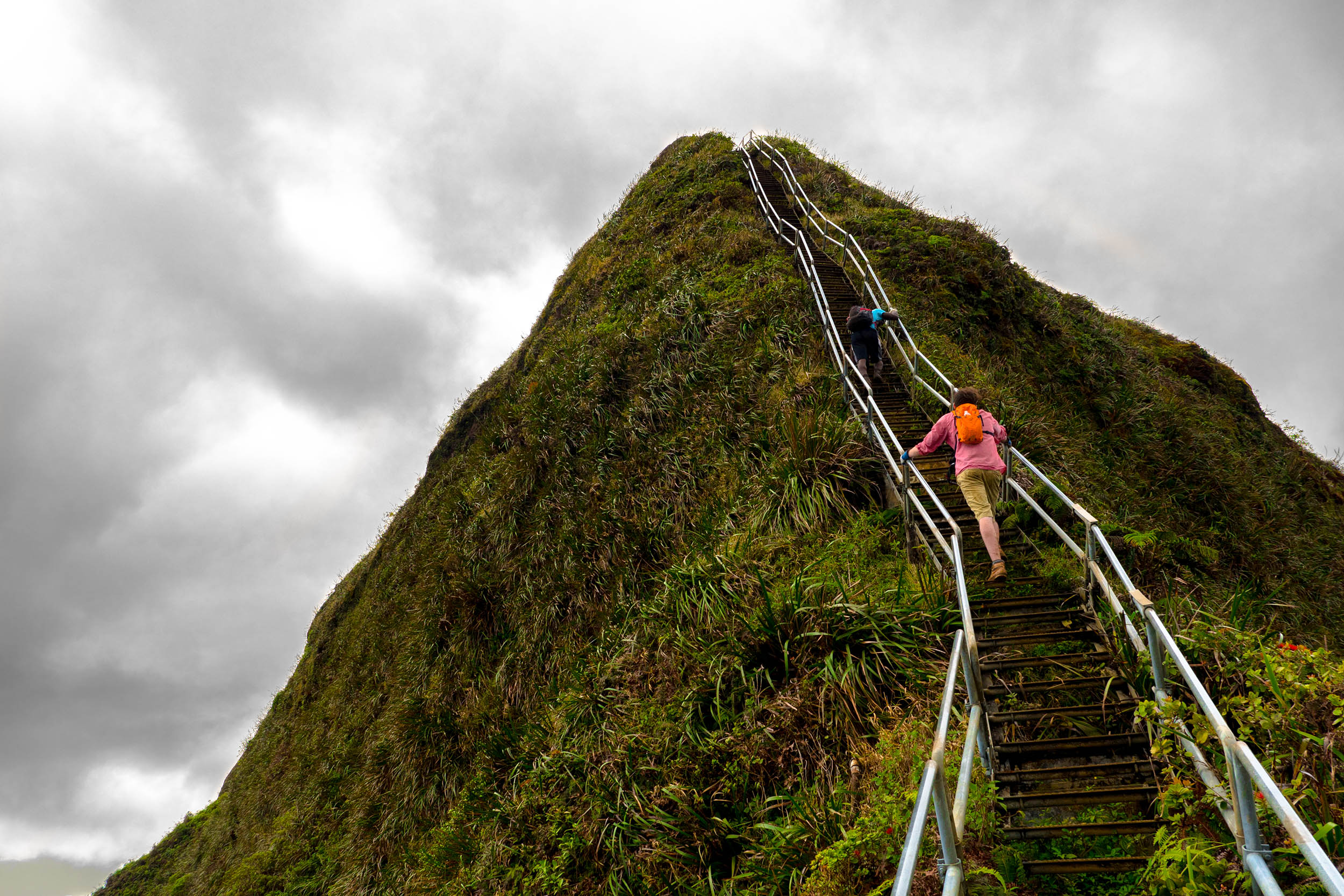
Last Monday, the City and County of Honolulu announced that one of Hawaii’s most dangerous and off-limits hikes would be permanently removed. The Ha’ikū Stairs, often known as the Stairway to Heaven, span over 4,000 steel steps across the Koolau Mountain Range on the island of Oahu.
The Stairway to Heaven was initially built by the US military during World War II
According to the city, the stairs were initially built by the US military during World War II but have been closed to the public since 1987 and are illegal to hike. But that hasn’t stopped thrill seekers from trespassing on private property to experience the famous hike.
The city and county unanimously approved a resolution to remove the stairs in 2021, citing complaints about frequent interruptions from individuals attempting to access the trail.
Residents of Haiku Valley reported hikers blocking driveways and narrow roads with their parked cars, leaving trash on private property, using homeowners’ water hoses to wash off or fill up drinking water, “relieving themselves” in the street, and making loud noises early in the morning as they set out to see the sunrise from the stairs.
The resolution stated that calls to Honolulu police concerning the stairs had increased over the years, and one officer was assaulted by a trespassing hiker in 2021.
The stairs have become a more popular attraction thanks to social media
Hikers have also been blamed for spreading an invasive species to the region around the stairs.
In the resolution, the city council stated that a “managed approach” would be ineffective because the stairs had become a more popular attraction thanks to social media.
The effort to remove the stairs is projected to last six months and cost more than $2 million.
The city stated that contractors will cooperate with a biologist to conserve native species, minimize erosion, and re-vegetate the land as each part of the stairs is removed.
“This was a decision, when we came into office, that was long overdue. Over the course of many months, in meeting with the people involved and the discovery that we put into it, I can promise you that this was not a capricious decision,” Honolulu Mayor Rick Blangiardi said during the announcement. “This decision that was made was predicated upon our respect for the people who live in and around the entrance to the stairs, our respect for our ʻāina, and our respect for both the future and the past history of the culture of the Haʻikū community.”






